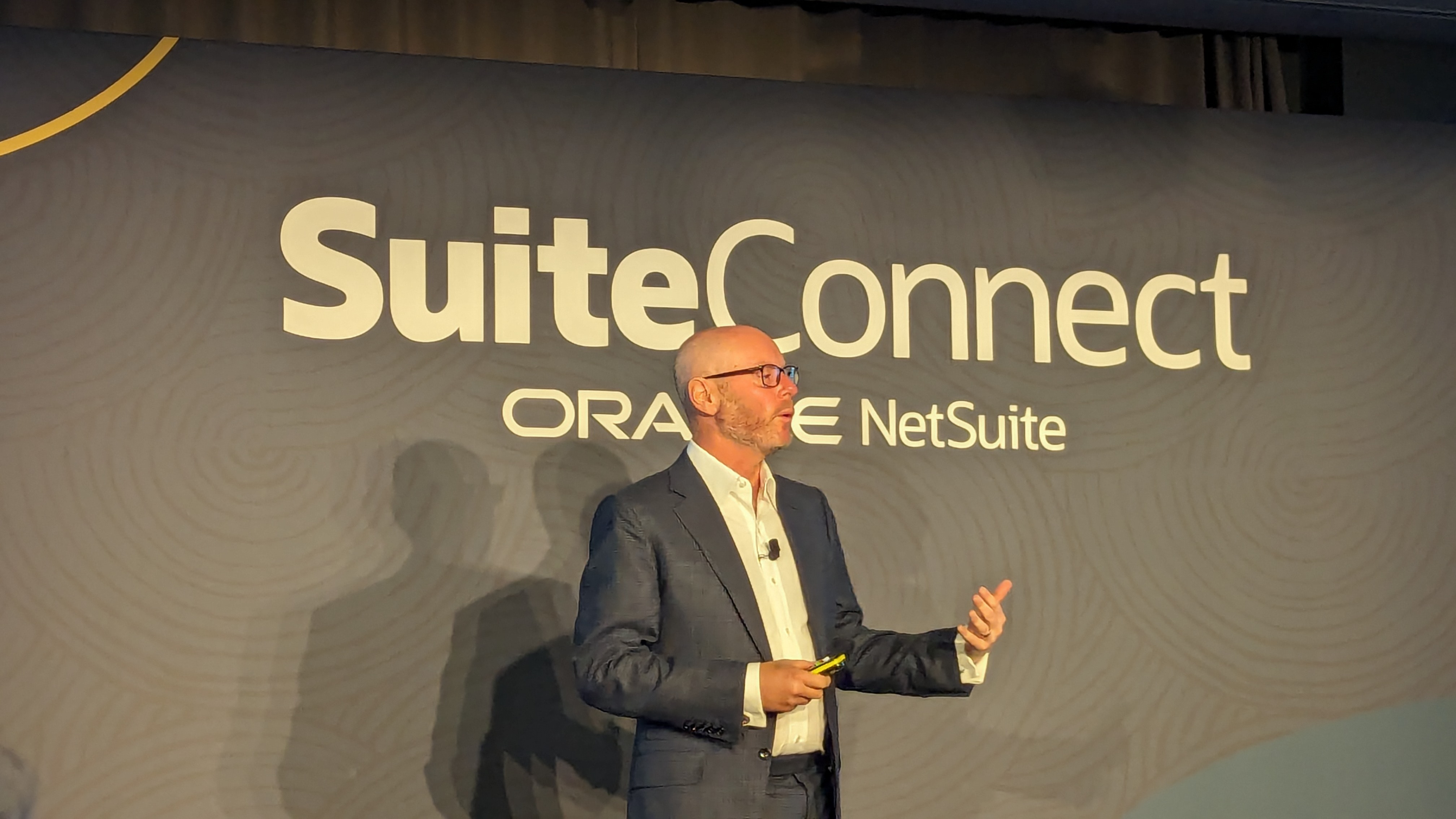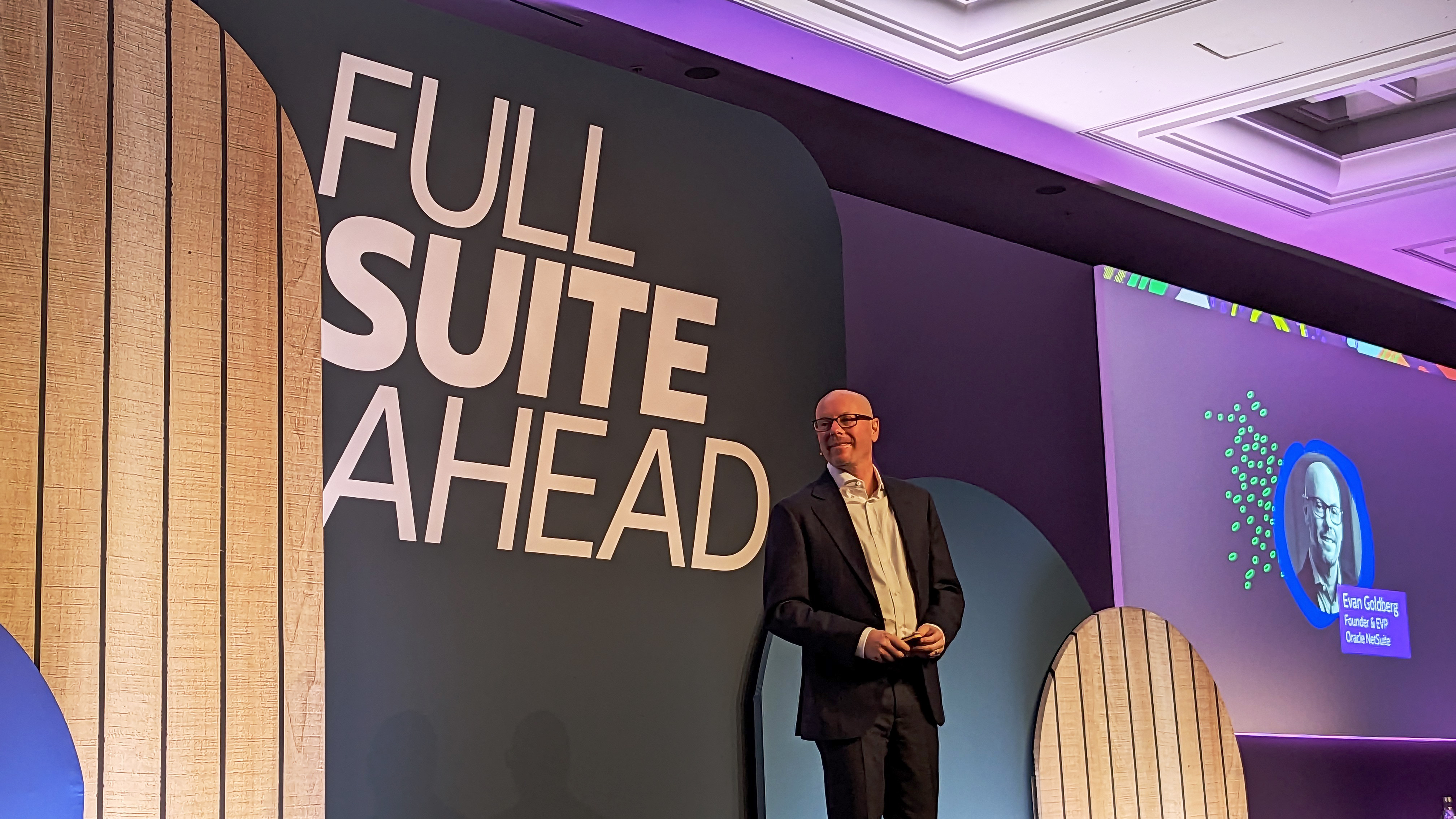Oracle ditches the hype for a straight talking generative AI approach
Oracle knows it has to box clever in the generative AI race, and its ambitions rest on delivering tangible enterprise use-cases


Oracle appears keen on cutting generative AI-related hyperbole from its lexicon in favor of a more straight talking approach as the firm targets big gains in the space.
Taking to the stage for Oracle CloudWorld 2024, Doug Kehring, EVP of Oracle’s corporate operations, led the charge on the company’s strategy, championing its purist enterprise focus and taking potshots at a few rivals in the process.
“All we do is enterprise technology,” he said. “We don't build gaming systems, we don't do consumer advertising, and we certainly don't write term papers for your kids.”
With the dizzying hype around generative AI over the last 15 months resulting in a myriad of new product and service announcements from major industry players, Oracle looks set for a more reserved and measured approach to the technology, and is setting its sight on practical AI functionality.
“We are deeply focused … on delivering [the] most extensive end to end set of technologies to help any organization within any industry automate their business,” Kehring said.
Oracle said its AI product portfolio is designed with enterprises in mind, geared towards accelerating revenue, improving operational efficiency, and enhancing the quality of user experiences.
So far, it seems to be doing something right. The company recently topped its quarterly profit estimates and saw cloud revenue jump by 25% alongside a 29% bump in other performance obligations.
Get the ITPro daily newsletter
Sign up today and you will receive a free copy of our Future Focus 2025 report - the leading guidance on AI, cybersecurity and other IT challenges as per 700+ senior executives
Though it may struggle to compete on a brand level with the likes of Microsoft or AWS at present, it nonetheless boasts a small but promising foothold in the cloud infrastructure market through its offerings.
To Oracle, the key is driving real-world, clearly defined value for any business that uses its products.
“Other vendors may offer similar technologies to Oracle - although I'd argue they're not nearly as good - but that's not enough anymore,” Kehring said.
“Technology by itself is no longer enough … rather, it's the value that the technology can deliver as part of a broader transformation. That's what matters,” he added.
This is the basis on which Oracle positions itself, helping to clearly generate value through its targeted solutions.
Like the umbrella name of its new AI offerings, Oracle strives for clarity - “what never goes out of style is to keep it simple, so we went with a name that's easy to remember - Oracle AI,” Kehring said.
What makes Oracle’s new AI attractive to enterprises
Embedding AI features within Oracle tools "from the ground up" is key to the company’s value proposition moving forward, Kehring said, and it was a concept referred to repeatedly throughout the flurry of announcements at the London conference.
“AI, for us, is embedded from the start,” he told delegates. The new features unveiled by the company, all of which are united under the roof of Oracle’s existing Oracle Fusion Cloud Applications Suite, have been designed with the overarching mission of improving decision making and enhancing both employee and customer experience.
Oracle will be supporting over fifty generative AI use cases within Oracle Fusion, and, as the company claimed, these features will be integrated within “existing business workflows” spanning finance, supply chain, HR, sales, marketing, and customer services.
It will be plugging AI into four aspects of the Fusion Cloud Application Suite, namely the Cloud Enterprise Resource Planning (ERP), Cloud Supply Chain and Manufacturing (SCM), Human Capital Management (HCM), and Customer Experience (CX) platforms.
RELATED WEBINAR

AI tools within these platforms will serve a huge range of functions, including insight narratives, project proposal generation, negotiation summaries, and job category landing pages, to name only a handful.
The firm was keen to emphasize that it’s targeting a huge range of enterprise-grade AI use cases across these offerings, firmly underscoring a desire to position itself as the go-to leader in the enterprise cloud market.
Rajan Krishnan, group vice president at Oracle Product Development, told ITPro the new offerings have been made possible by its existing technology infrastructure, which stands it in good stead for the coming years.
“We have both vectors, we have the technology side covered, we have the horizontal processes like ERP and HCM covered,” Krishnan said. Similarly, the robust nature of this existing technology stack allows for an ease of roll out in new AI tools.
“That robust infrastructure allows us to introduce all these things so rapidly, and we are the beneficiaries,” Krishnan said.
Oracle success is mirrored by its customers
Kehring said Oracle defines its success in the “reflection” of its customer success, and while that has an air of promotional rhetoric about it, it does seem to be the case that Oracle’s new offerings have been a hit with customers thus far.
Oracle CloudWorld’s billing of speakers was packed end-to-end with customer success stories, all the way from Nokia to the UK’s Department of Work and Pensions (DWP).
These stories helped sing Oracle’s praises in the B2B space, yet further setting the cloud company apart from competition and highlighting a range of tangible success stories.
“We put your success in the heart of everything we do … and we're really here to serve,” Kehring said.

George Fitzmaurice is a former Staff Writer at ITPro and ChannelPro, with a particular interest in AI regulation, data legislation, and market development. After graduating from the University of Oxford with a degree in English Language and Literature, he undertook an internship at the New Statesman before starting at ITPro. Outside of the office, George is both an aspiring musician and an avid reader.
-
 Bigger salaries, more burnout: Is the CISO role in crisis?
Bigger salaries, more burnout: Is the CISO role in crisis?In-depth CISOs are more stressed than ever before – but why is this and what can be done?
By Kate O'Flaherty Published
-
 Cheap cyber crime kits can be bought on the dark web for less than $25
Cheap cyber crime kits can be bought on the dark web for less than $25News Research from NordVPN shows phishing kits are now widely available on the dark web and via messaging apps like Telegram, and are often selling for less than $25.
By Emma Woollacott Published
-
 ‘DIY’ agent platforms are big tech’s latest gambit to drive AI adoption
‘DIY’ agent platforms are big tech’s latest gambit to drive AI adoptionAnalysis The rise of 'DIY' agentic AI development platforms could enable big tech providers to drive AI adoption rates.
By George Fitzmaurice Published
-
 AI agent announcements are a dime a dozen right now – here’s what Oracle thinks it’s doing differently
AI agent announcements are a dime a dozen right now – here’s what Oracle thinks it’s doing differentlyNews Oracle’s latest foray into the world of AI agents will leverage the firm’s strength in infrastructure and come at no additional cost to users.
By George Fitzmaurice Published
-
 Oracle bets on vector search capabilities to drive enterprise AI value
Oracle bets on vector search capabilities to drive enterprise AI valueNews Oracle claims its new tool will bring AI “to where the data is,” rather than the other way around
By George Fitzmaurice Published
-
 NetSuite doubles down on localized AI with UK, EMEA product launches
NetSuite doubles down on localized AI with UK, EMEA product launchesNews Regional product launches aim to address struggles with ESG reporting and surface more data insights for NetSuite’s EMEA customers
By Rory Bathgate Published
-
 IDC MarketScape: Worldwide supply chain Oracle ecosystem services vendor assessment
IDC MarketScape: Worldwide supply chain Oracle ecosystem services vendor assessmentWhitepaper In-depth assessment of IT consulting providers supporting supply chain management processes
By ITPro Published
-
 Oracle missed the cloud boat - is it doing the same with AI?
Oracle missed the cloud boat - is it doing the same with AI?Analysis Founder and chairman Larry Ellison says billions will be spent to lure AI companies to Oracle’s cloud, but is it too little too late?
By Richard Speed Published
-
 NetSuite aims to be a ‘global local solution’, set to double down on automation
NetSuite aims to be a ‘global local solution’, set to double down on automationNews The ERP giant is betting that its all-in approach will lure customers in the uniquely-complex EMEA market
By Rory Bathgate Published
-
 NetSuite announces accounts payable automation to boost transfer accuracy and efficiency
NetSuite announces accounts payable automation to boost transfer accuracy and efficiencyNews HSBC will facilitate automatic payments for the solution, which uses OCR and ML to improve payment and reconciliation
By Rory Bathgate Published